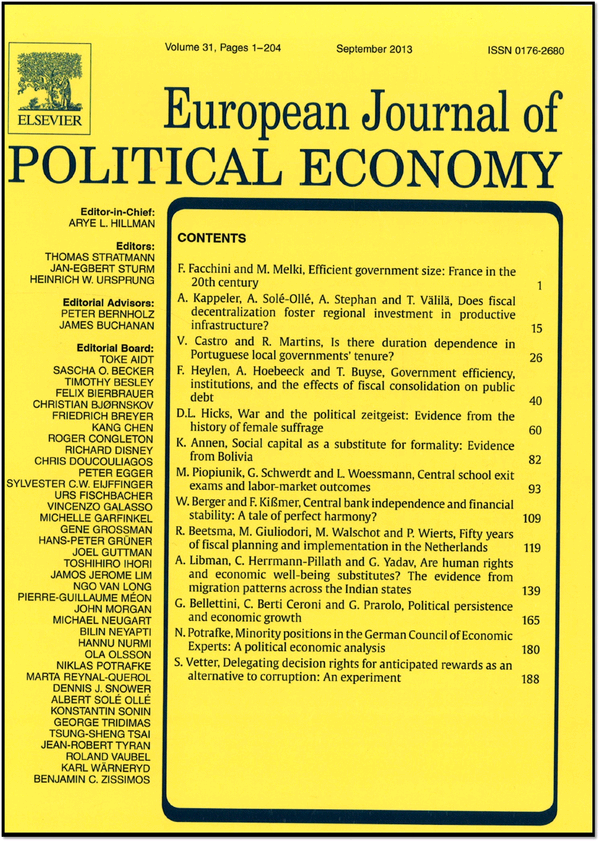
The Social Capital Legacy of Communism-results from the Berlin Wall Experiment
In this paper we establish a direct link between the communist history, the resulting structure of social capital, and attitudes toward spatial mobility. We argue that the communist regime induced a specific social capital mix that discouraged geographic mobility even after its demise. Theoretically, we integrate two branches of the social capital literature into one more comprehensive framework distinguishing an open type and a closed type of social capital. Using the German Socio-Economic Panel (GSOEP) we take advantage of the natural experiment that separated Germany into two parts after the WWII to identify the causal effect of social capital on mobility. We estimate a three equation ordered probit model and provide strong empirical evidence for our theoretical propositions.




